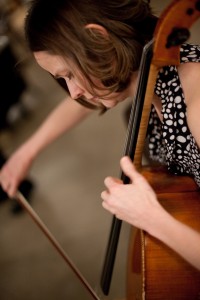Never Suck.
 I thought I’d explore a little-discussed truth that affects us all as artists, and one that applies whether you choose to explore the entrepreneurial life or not.
I did my undergraduate degree at the Eastman School of Music, and one of the many things I loved about the school was that its size was such that there was hardly a face you didn’t know while walking down Gibbs Street. As a freshman, having the opportunity to work (and play) with upperclassmen was a definite bonus, and allowed me to take advantage of the culture and work ethic that pervades the school.
I thought I’d explore a little-discussed truth that affects us all as artists, and one that applies whether you choose to explore the entrepreneurial life or not.
I did my undergraduate degree at the Eastman School of Music, and one of the many things I loved about the school was that its size was such that there was hardly a face you didn’t know while walking down Gibbs Street. As a freshman, having the opportunity to work (and play) with upperclassmen was a definite bonus, and allowed me to take advantage of the culture and work ethic that pervades the school.
During my first year, I got to know a fantastic trumpet player who was a senior at the time. Aside from showing me the ropes at the school, including how to dodge the security guards to get into the best spaces to practice late at night, he gave me a piece of advice that has served me well to this day. Put simply:
Never suck.
Ever.
Under any circumstances.
I remember him telling me that you never know who is going to be listening, and when they’re going to be in a position to sign your next paycheck.
As student or professional musicians, we’ve all been there. It could be that rural church gig on a dreary Sunday in February, the interminable joy that is 8:30 am conducting seminar, or a reading of a newly composed work that you don’t know well enough to enjoy yet. There are so many circumstances when we can be tempted to let our musical guard down, surrendering to the lowest common denominator of apathy and artistic morning breath that can become the norm on some types of jobs.
We slouch, we play with an unsupported sound, we daydream. In short, we don’t do our best, because it doesn’t matter, right? Who’s going to care if that high C doesn’t speak? And who ARE these people? Do they even have music degrees? Did this composer learn how to write music by watching Meow Mix commercials all day long?
And then, it happens.
For me, it was the summer after I received this little gem of advice. I was in my first of two summers at the Aspen Music Festival and School, a place which I highly recommend for any student who can afford to go. Looking back at the experiences I had there, I know that it’s one of the best places in the country to meet other artists who can and will have a real impact on your career someday.
Always at the mercy of the rotation system that exists in the orchestra program there, I was placed in the pit for the opera students’ production of Stravinsky’s The Rake’s Progress. It was a work that not many of the orchestral musicians knew. Secondly, being in the pit tends to feel like the name would suggest to some instrumentalists, despite the fact there is so much to learn from listening to beautifully executed vocal music. And lastly, the conductor was young, and someone that most of the orchestra hadn’t had the pleasure of working with, or apparently hearing of, before the first rehearsal.
You can guess what happened next. Most of the orchestra played the first rehearsal as if executing a collective eye-roll. A horrifying moment happened when the conductor asked the principal trumpet player for his first name when making a musical comment to him, and the answer was, “J*&# (changed to protect his reputation), what’s YOURS?” Determined not to let the insouciance affect the rehearsal, the conductor simply responded, “You’re clever,” and moved on.
I remember thinking to myself that the “never suck” principle was going to have to apply here, tempted as I was to join in the apathy. I stayed focused, nailed my part, and found myself enjoying both the piece and the conductor, who I thought was clear, concise, and possessing of a well-formed musical point-of-view.
Fast forward a few months to February, when I received the sort of out-of-the-blue phone call that, when you’re a student, you think only happens to other people. It was the conductor that I had worked with for The Rake’s Progress in Aspen, calling from Frankfurt. Apparently he and his colleagues had been discussing who they should invite to fill a flute position at a new summer chamber music festival (MMCK) in Japan, and, remembering my work, he saw fit to look me up via my flute teacher. The following year, I had a fantastic three weeks in Kazusa and Tokyo, working with artists from all over the world, and generally grateful for the advice that put me there.
There are many other stories that I could tell about how not surrendering to the lowest common denominator afforded me jobs, opportunities, relationships, and paychecks that I would never otherwise have had. As a freelance musician, the kind of reliability that this attitude brings becomes your calling card. People know that when they call you they’ll get a job well done, and that’s invaluable.
Oh, and as another little tidbit, the conductor in question was Alan Gilbert. Though many of the student musicians at Aspen in 1999 hadn’t heard his name at the time, he’s gone on to do quite well for himself, as we know.
Point taken.
Melissa is the flutist and Executive Director of the Chicago-based Fifth House Ensemble. She also contributes to the Entrepreneur the Arts blog. Fifth House Ensemble
